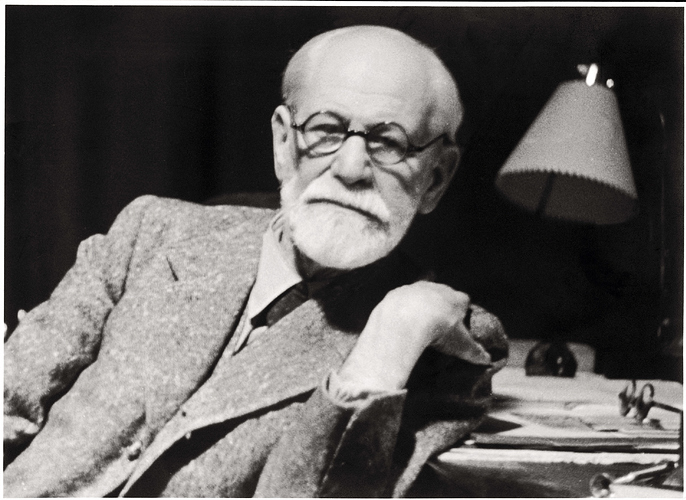At the Verso blog, sociologist Linda Roland Danil makes the case for Freud as a politically radical thinker, as evidenced by subtle but crucial remarks in some of his most important works. As Danil notes, Freud believed in social justice not only as a matter of simple fairness, but also as a matter of psychological health, both individual and collective. Here’s an excerpt from her piece:
At heart, psychoanalysis is a radical project, or as Herbert Marcuse put it in Eros and Civilization, a ‘radically critical theory’, insofar as it forces us to acknowledge deeply uncomfortable truths about ourselves. For Freud, as a species we have a preponderance to be, at root, aggressive, conflicted, and significantly unaware of some of our deepest intentions and desires.
Moreover, beyond this, Freud also made explicit arguments that revealed him to be concerned with social justice. This is the case in, amongst other places, The Future of an Illusion (1927), where in spite of arguments that are deeply pessimistic about human nature and in which he characterizes the masses as fundamentally lazy and unintelligent, Freud emerges as a latent socialist and pro-revolutionary (and not necessarily in a violent sense). In relation to the repression of instinctual impulses in the service of civilization, Freud argues that:
‘If […] a culture has not got beyond a point at which the satisfaction of one portion of its participants depends upon the suppression of another, and perhaps larger, portion – and this is the case in all present-day cultures – it is understandable that the suppressed people should develop an intense hostility towards a culture whose existence they make possible by their work, but in whose wealth they have too small a share. In such conditions an internalization of the cultural prohibitions among the suppressed people is not to be expected […] It goes without saying that a civilization which leaves so large a number of its participants unsatisfied and drives them into revolt neither has nor deserves the prospect of a lasting existence.’
Image of Freud via Tablet.
